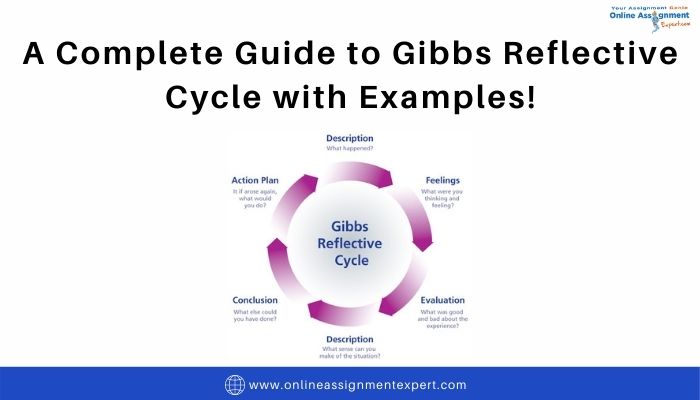
November 03, 2020
Here’s A Complete Guide to Gibbs Reflective Cycle with Examples!
No 1 Assignment Help
is only a click away.
Here’s A Complete Guide to Gibbs Reflective Cycle with Examples!
If you are a student pursuing nursing courses then you may have a well understanding of nursing reflection examples such as Johns, Atkins and Murphy, Gibbs, and other models. Composing assignments on these models can be challenging for many students. Keeping this in mind, we are providing Gibbs reflective cycle examples so that they can get assignment help in doing their assignments. On this page, we along with our nursing assignment experts have discussed essential information about Gibbs reflective cycle, its use, benefits, and Gibbs reflective cycle questions and more. Let's begin!
Introduction to Gibbs Reflective Cycle
Gibbs' reflective cycle is debatably the most used and famous reflection models in nursing. It leads you to various stages to make a sense from an experience. However, Gibbs reflective cycle was developed in 1988 by Graham Gibbs. The purpose of this reflective cycle was to give structure for the learning you have gained from an experience. It provides a framework to study, observe, examine, and evaluate a particular experience, and allows you to plan from experiences that either went correct or not. There are 6 stages involved in the Gibbs Reflective Cycle –
- Description
- Feelings
- Evaluation
- Analysis
- Conclusion
- Action plan
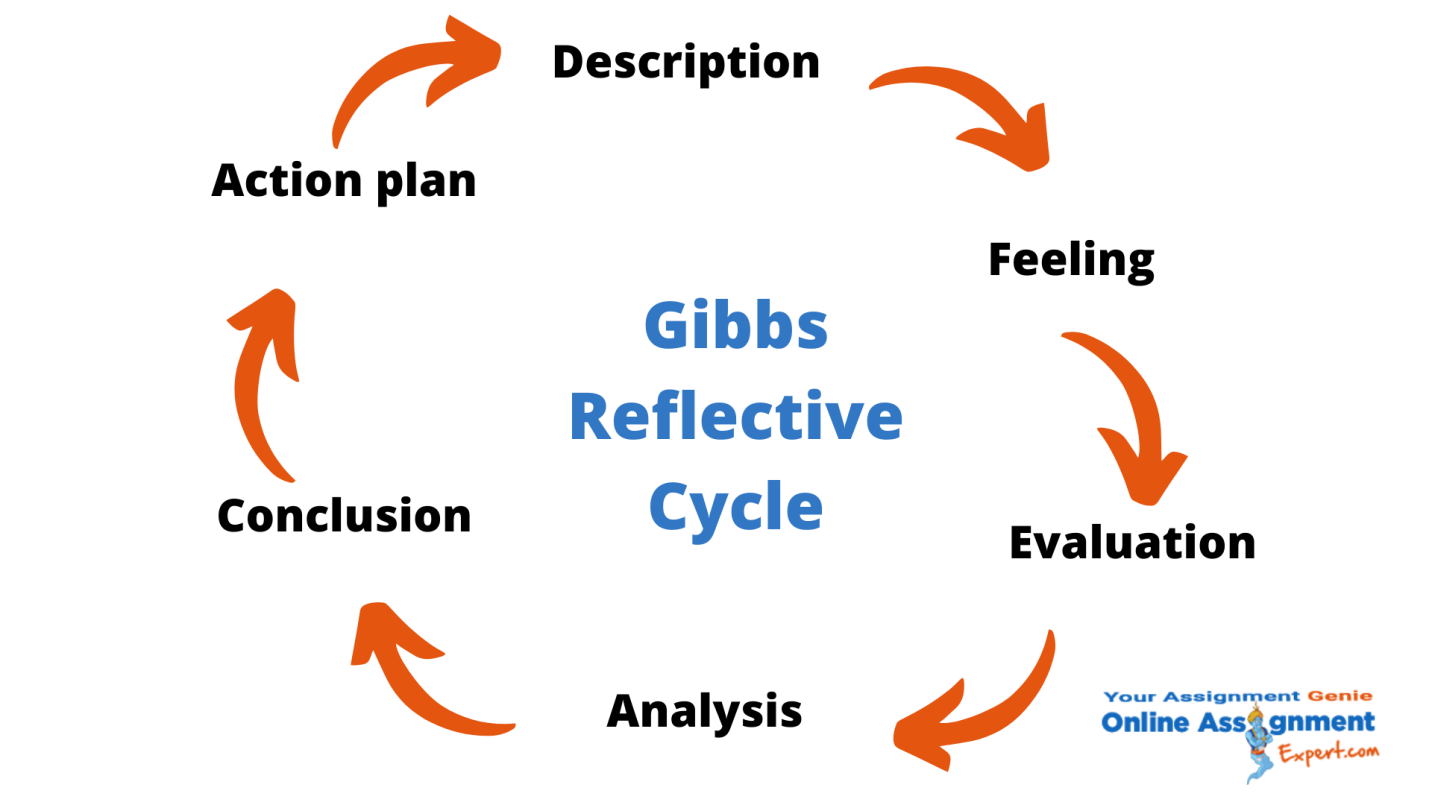
Let's understand these stages with the help of a Gibbs reflective cycle example nursing.
Gibbs Reflective Cycle Assessment Questions
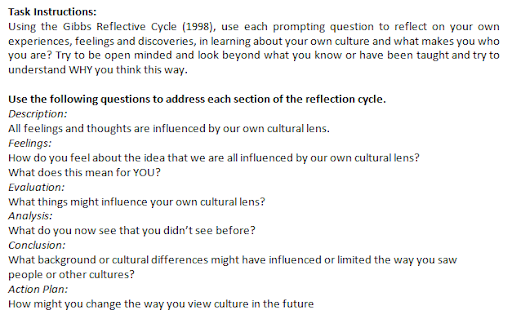
The maximum words allotted for this assignment is 500 words. Being a student, you are required to address all the stages of Gibbs reflective cycle, present your understanding for each stage, show self-awareness and depth knowledge of the reflection. In case, if you doubt any skills then you may reach to Online Assignment Expert where a team of certified academic writers are available to help in Gibbs reflective cycle references, writing, editing, and proofreading. We as Online Assignment Expert also provide Gibbs reflective cycle examples so that you can get help in understanding the ways to deal with nursing reflective cycle assignments especially Gibbs reflective cycle. Now, it's the time to discuss the Gibbs reflective cycle stages i.e. description, feeling, evaluation, analysis, conclusion, and action plan.
Gibbs Reflective Model
Gibbs reflective model is one of the best ways to work based on the experience. It can be either a situation-based or stand-alone experience. For each stage of Gibbs reflective model, few Gibbs reflective cycle questions are listed below. It is not necessary to answer all these questions but these questions guide you with the things that to be included in a specific stage.
Description
This section allows you to explain the situation of an event in detail. Here, you are required to include a few points concerned with a situation/event. Few helpful questions may be:
- What has happened?
- How it has happened?
- Reasons to happen
- Who all were present at the time of the situation?
- How people reacted to that situation?
- What did you do during that situation?
Example of 'Description'
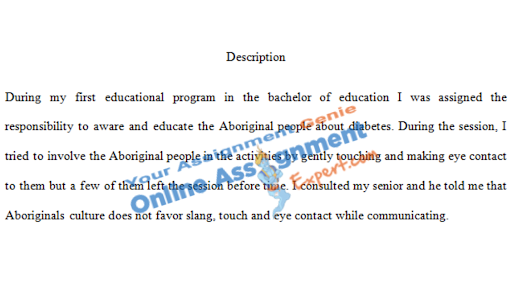
Feelings
The feeling is the second stage of Gibbs reflective cycle where you are free to explore your thoughts and feelings you have experienced when the event/ situation takes place. Moreover, you may discuss the ways in which it has wedged the experience. To write this section, you are required to focus on the following questions -
- How did you feel at the time of the situation?
- Discuss your feeling before and after the incident?
- Include other people (available during the situation) before and after feeling about the situation?
Evaluation
The 3rd stage is evaluation. Here, you are required to examine and evaluate the things that have worked and the things that went wrong to the situation. Here, you should be honest and as objective as you can. You may reflect both the negative as well as positive aspects of the situation. In case, if you lack to explain this stage then you can refer Gibbs reflective cycle example anytime. Helpful questions:
- Describe the bad as well as good experiences about the situation?
- What were the things that went well?
- Discuss the things or steps that have not gone as per expectation?
- The ways in which you did and other people have contributed to the situation. Remember that you may include negatively and positively.
Example of 'Evaluation'
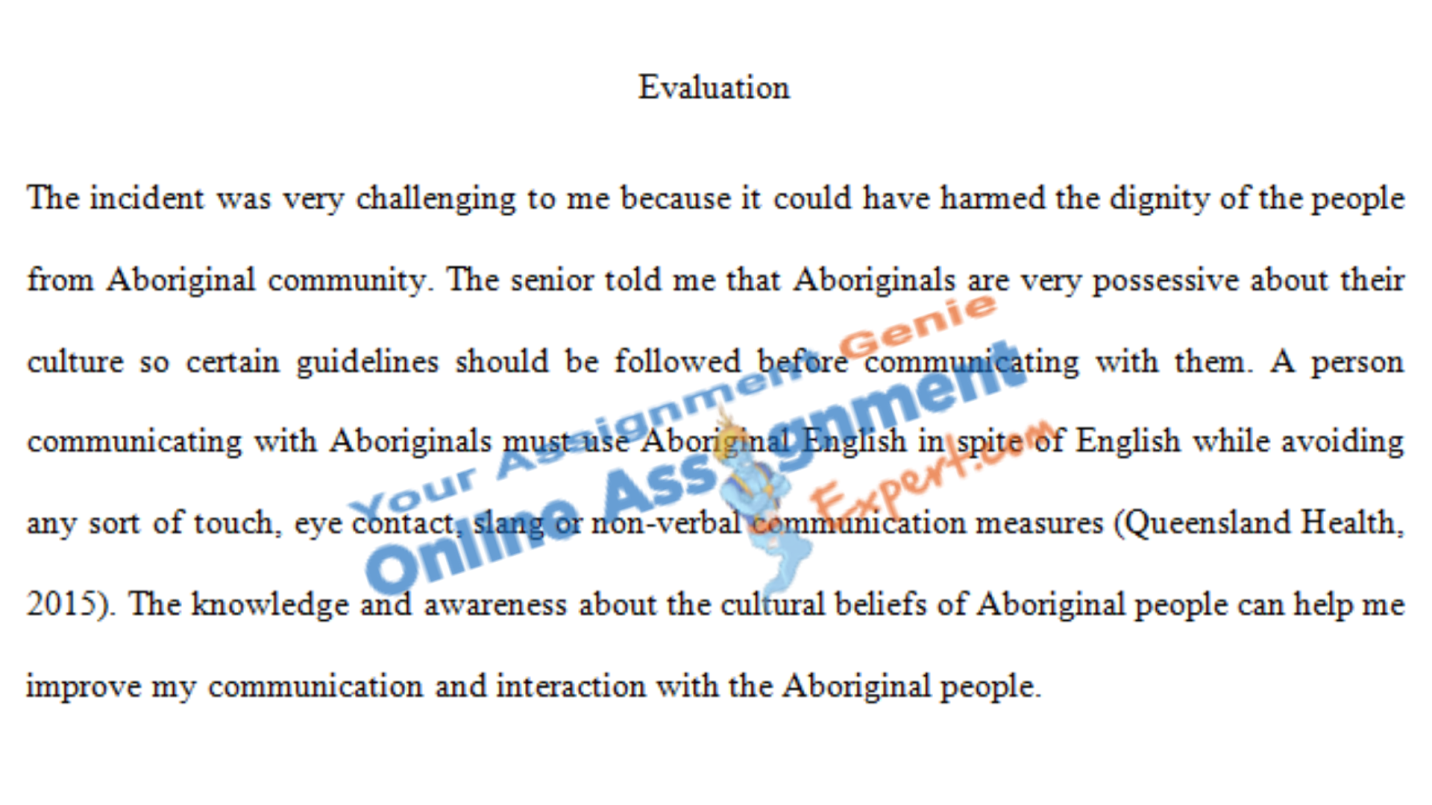
Analysis
An analysis stage is a place where you get a chance to analyse what happened. You may focus on the details such as why this situation happened, what happened, etc. In other words, analysis is a place to extract meaning from the situation based on your experience. Moreover, you are required to focus on the various aspects. Also, it is the best place to introduce academic literature. Helpful questions:
- State the reasons behind the things that go well or didn't go well.
- Discuss the sense that can be made from the situation.
Example of 'Analysis'
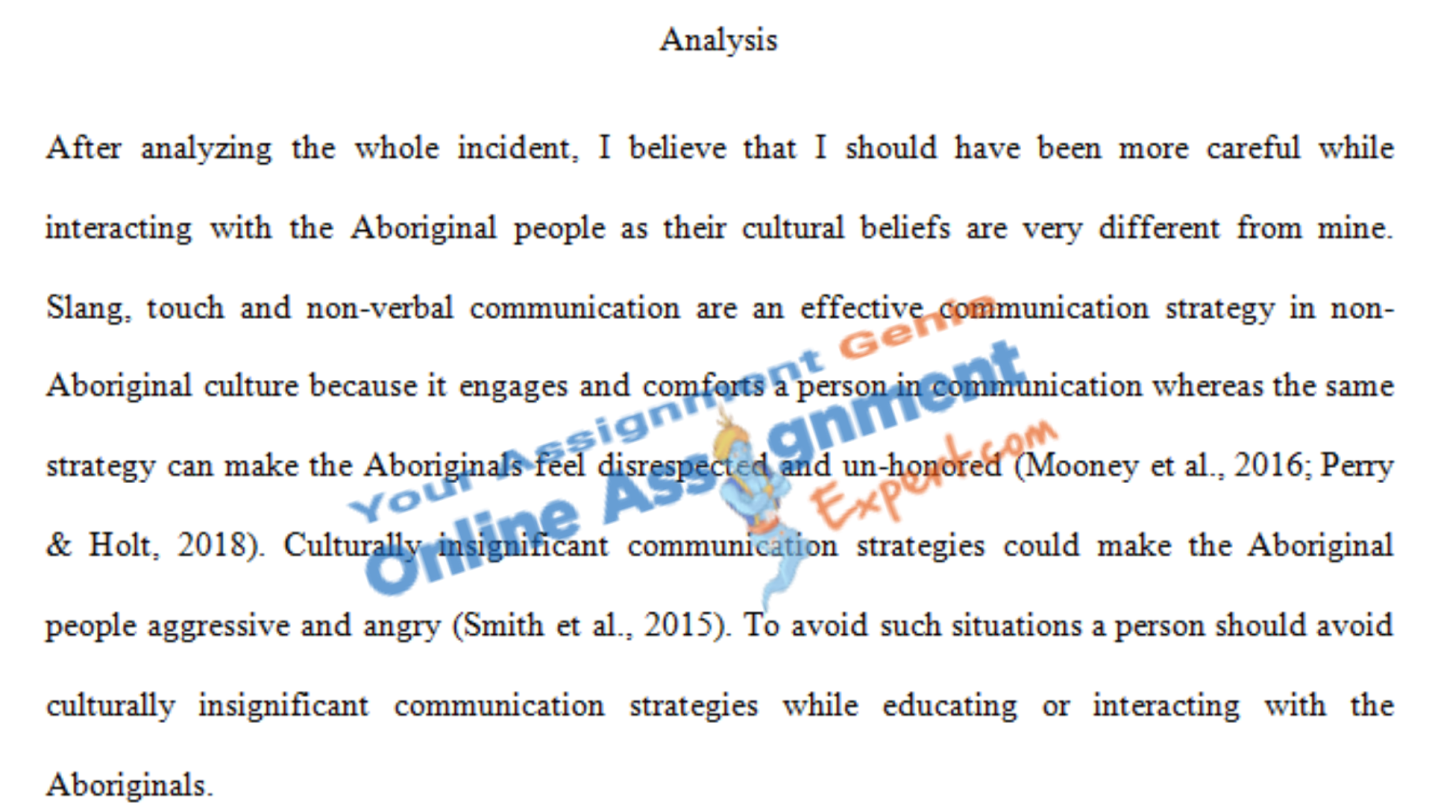
Conclusions
Here, you are needed to make conclusions about the situation. It can be said as a place where you are required to summarise the highlight and learning what types of changes in actions can improve future results. Answering to these student nurse reflection examples questions:
- Learning from the situation
- Present ideas to be positive in such a situation.
- Propose the steps that can be followed in the future whenever such scenarios occur.
- Present the skills required in handling such a situation in a better way
Action plan
An action plan is a place where you present the steps that can be taken in the future. It could be very much helpful to discuss what you think or act to overcome with the situation if it takes place. Answering the following questions of the Gibbs reflective cycle example nursing can help in creating an action plan.
- What could be the things that should be followed or avoid when the same thing happens again.
- The ways to develop or enhance the required
- Ensure how you can act in a different way
Willing to know more about the Gibbs Reflective Cycle? Contact Online Assignment Expert!
If you are assigned with Gibbs reflective cycle and need help then the best option to be to contact us. We, at Online Assignment Expert, are best known in Australia for the best writing services. Our nursing assignment help with nursing reflection examples are well-versed with the Gibbs reflective models and stages and ways to write them. They have written 1000+ assignments for different Australian universities like Monash, University of Sydney, University of Melbourne, Deakin University, and others too.
- Preferred writers to choose
- Downloading samples
- Unlimited revisions
- Dissertation writing help
- Proofreading & editing help
- 100% confidentiality and privacy
- Friendly prices
- Original content
- Live support
To experience these services, you are only required to click on the order now tab and fill the form. To get help in Gibbs reflective cycle nursing example then directly contact Online Assignment Expert by dialing our customer care number or drop an email with all the details you have received from your university. We ensure you to deliver a high-quality assignment prepared as per the given details.
Subscribe Our Newsletter & get Information about latest courses



